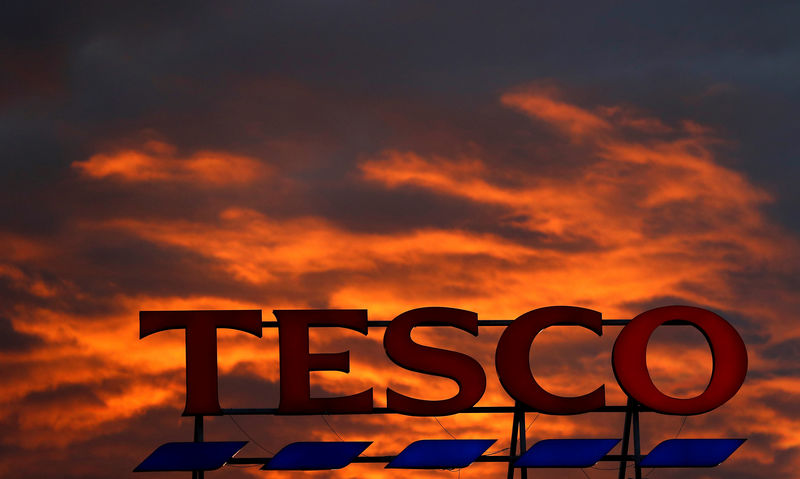This post was originally published on this site
https://i-invdn-com.akamaized.net/news/LYNXNPEE920TW_M.jpg
Investing.com — Anyone who’s been to a supermarket in the last few weeks has probably come away with the idea that the sector is doing better than most in the current Covid-19 crisis.
To which the U.K.’s biggest grocer, Tesco (LON:TSCO), replied: “Up to a point.”
Yes, there has been an uplift from panic-buying of staples – a 30% uplift in U.K. stores, the company said in a trading update on Wednesday.
But panic-buying only dislocates the time horizon of consumption, rather than increasing it. The average family will not use more toilet paper over the course of this year than it does in any other year (unless, of course, it is blessed with a seven-year old girl who sees the stockpile as an inexhaustible supply of crafting material).
More importantly, even the temporary boost to sales is more than offset by other factors, such as lower outlays on discretionary items and, particularly, extra costs arising from staffing disruptions. Tesco estimated additional costs of between 625 and 925 million pounds this year, having hired 45,000 extra staff so far to deal with the surge in business.
To make things worse, Tesco warned that its banking arm will probably lose money this year due to a rise in bad loans, as the income of millions of newly-unemployed customers dries up.
Tesco shares fell 3.7% by mid-morning in London on the news, dragging the rest of the U.K. supermarket sector down with them. J Sainsbury (OTC:JSAIY) shares and Morrison Supermarkets shares were both down 3.3%.
The moves helped to make the U.K. FTSE 100 underperform the broader Stoxx 600 index with a 1.6% decline, compared with a 1.2% drop for the regional benchmark. Other European markets also suffered as Eurozone finance ministers failed yet again to agree on how to fund the region’s crisis response, with Germany and others continuing to reject calls from France, Spain and Italy for common debt issuance.
Elsewhere in its update, Tesco also scrapped its guidance for the new fiscal year (as did Dutch brewer Heineken (AS:HEIN)).
However, it wasn’t all bad news. Being in the staples business gives the supermarkets an unusually reliable cash flow, and thus confidence about their liquidity. As such, Tesco not only stuck by plans to pay a full-year dividend, it actually paid out more than previously guided at 9.15 (yield of over 4.4% at current prices).
By contrast, U.K. insurers Aviva (LON:AV), Hiscox (LON:HSX) and RSA (LON:RSA) all caved in to regulatory pressure on Wednesday and said they would suspend dividend payments until the crisis passes.

